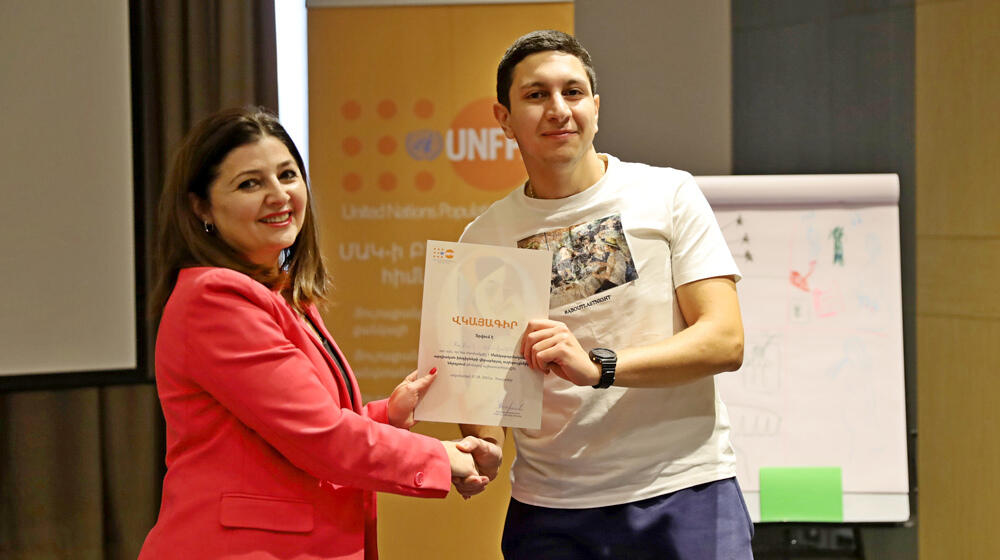Seventeen future specialists in the field of reproductive health were acquainted with the clinical guidelines for hospital obstetrics and gynecology care.
The guidelines developed within the sexual and reproductive health programme of UNFPA Armenia were prepared in cooperation with the officials and specialists in the field. The guidelines are based on the new approaches of the World Health Organization and those of prestigious professional associations.
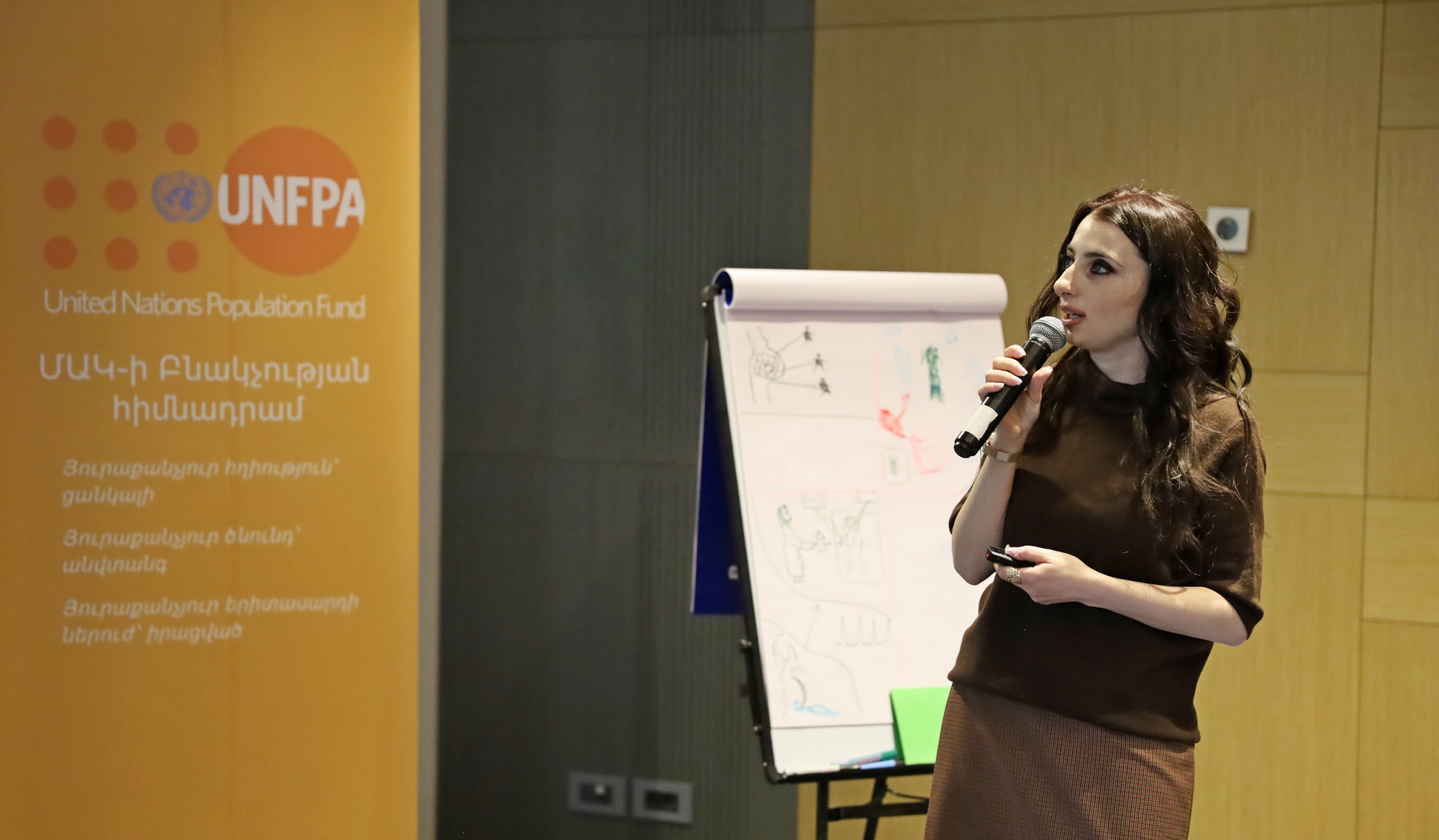
The "Introduction of Clinical Guidelines" workshop, organized by the UNFPA Armenia on October 27- 29, 2023, aimed not only to familiarize clinical ordinators with the critical provisions of these guidelines but also to engage in discussions regarding the latest approaches in evidence-based medicine. Considering that the clinical ordinators are in their final year of training, mastering these guidelines will serve as a crucial cornerstone for their ability to provide competent and accurate services in the future.

Narine Beglaryan, Sexual and Reproductive Health Programme Analyst at UNFPA Armenia, expressed the commitment to promoting modern approaches and evidence-based medical services in Armenia.
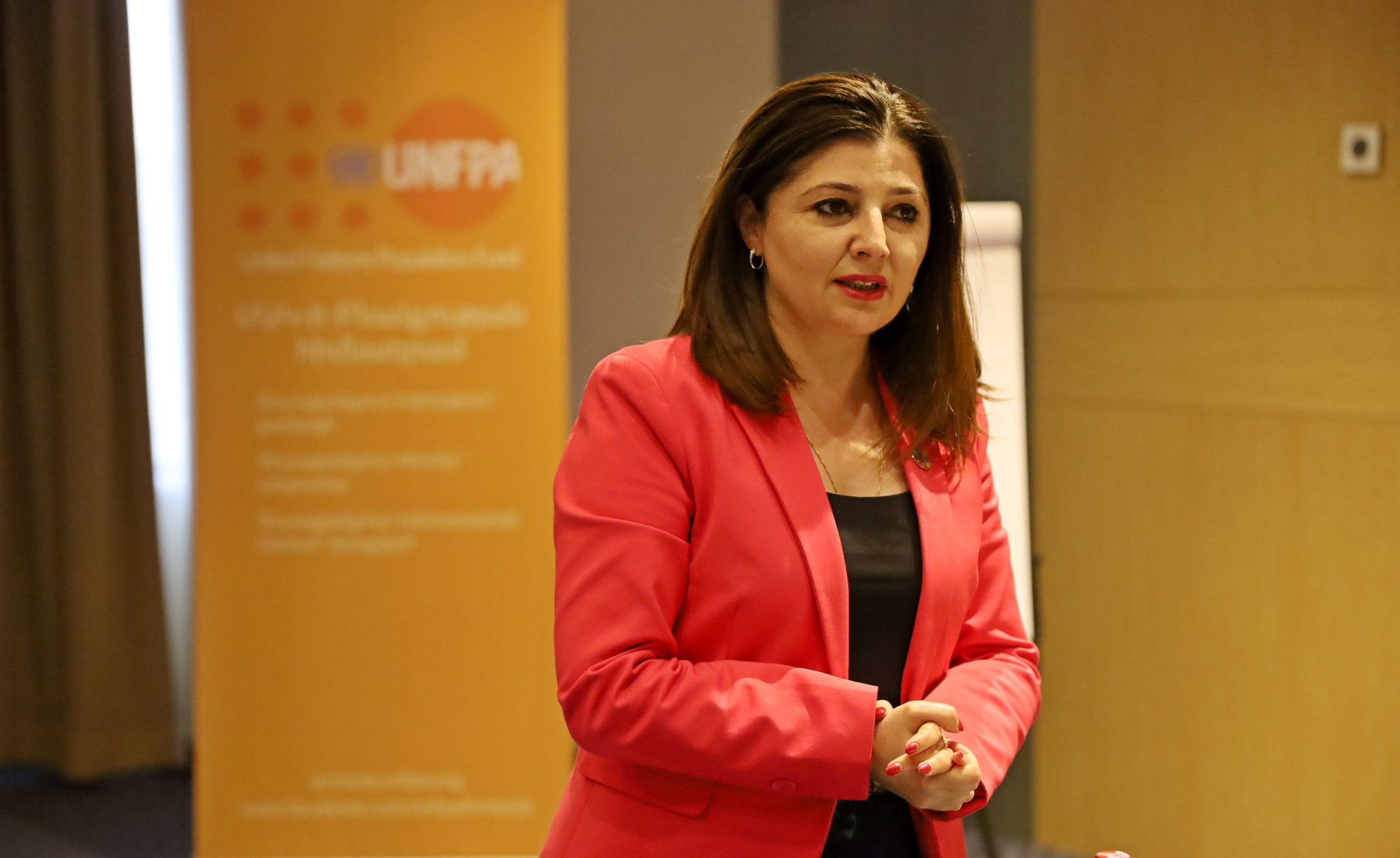
"UNFPA continually supports the enhancement of maternal and reproductive health in Armenia. The development of clinical guidelines and their broader adoption among healthcare professionals is just one of the many programmes we implement to improve policies and strengthen the capacity of professionals."

One of the workshop participants, Rafael Simonyan, highlighted that he had consistently received positive feedback about the conference from senior colleagues. This influenced his decision to participate in the event.
"The knowledge and advice we received are evidence-based, crucial for our future competence, improving the quality of the medical care we provide, and reducing associated risks. Our learning in hospitals and clinics often relies on what we observe, which may not always align with scientific correctness. Engaging in scientific approaches here breaks many existing stereotypes."
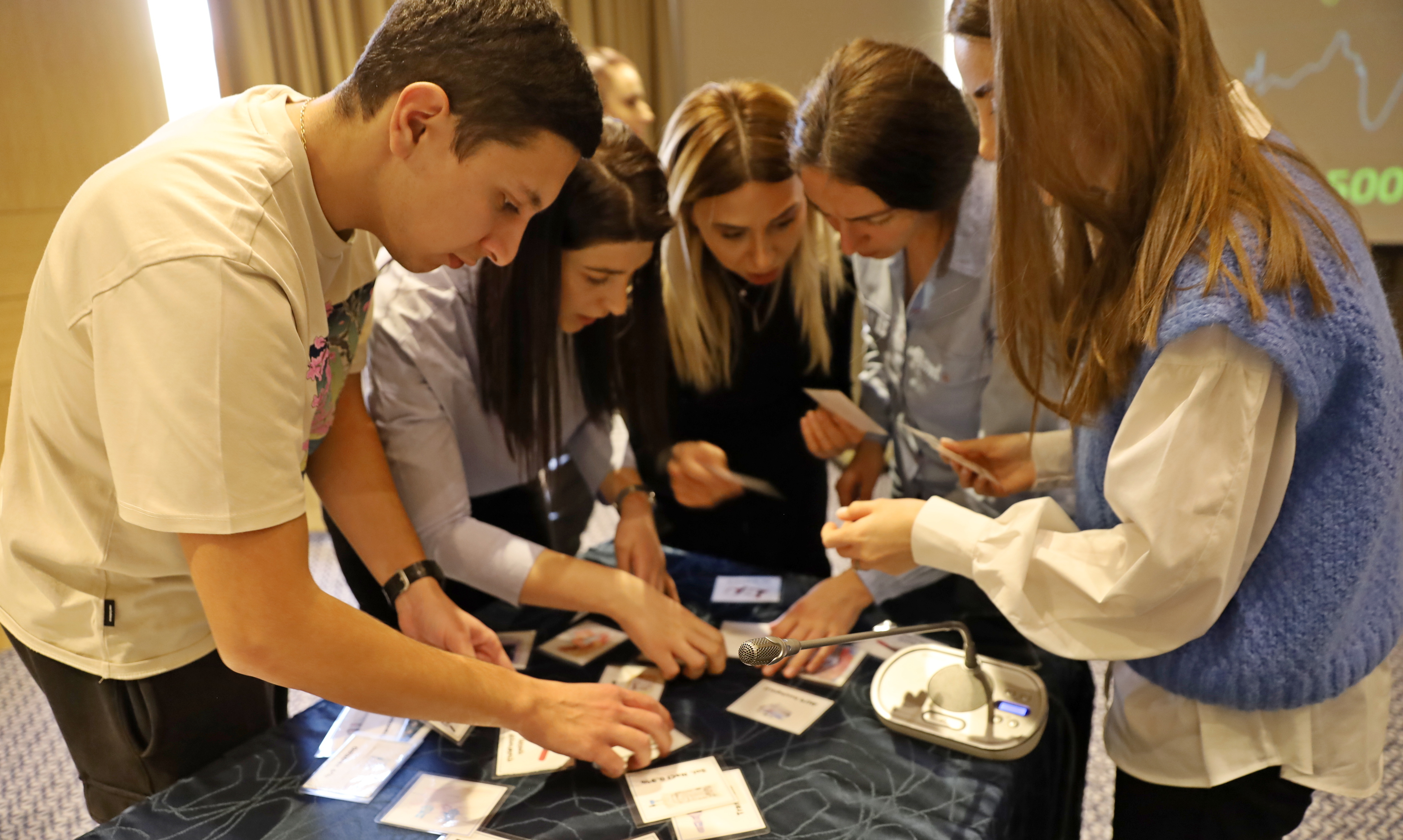
Maria Nazaryan stressed the effectiveness of the methods of guidelines presentation, highlighting the practical and group work format as more efficient for their learning process. "The conference provided me with huge resources for my future work as a specialist."
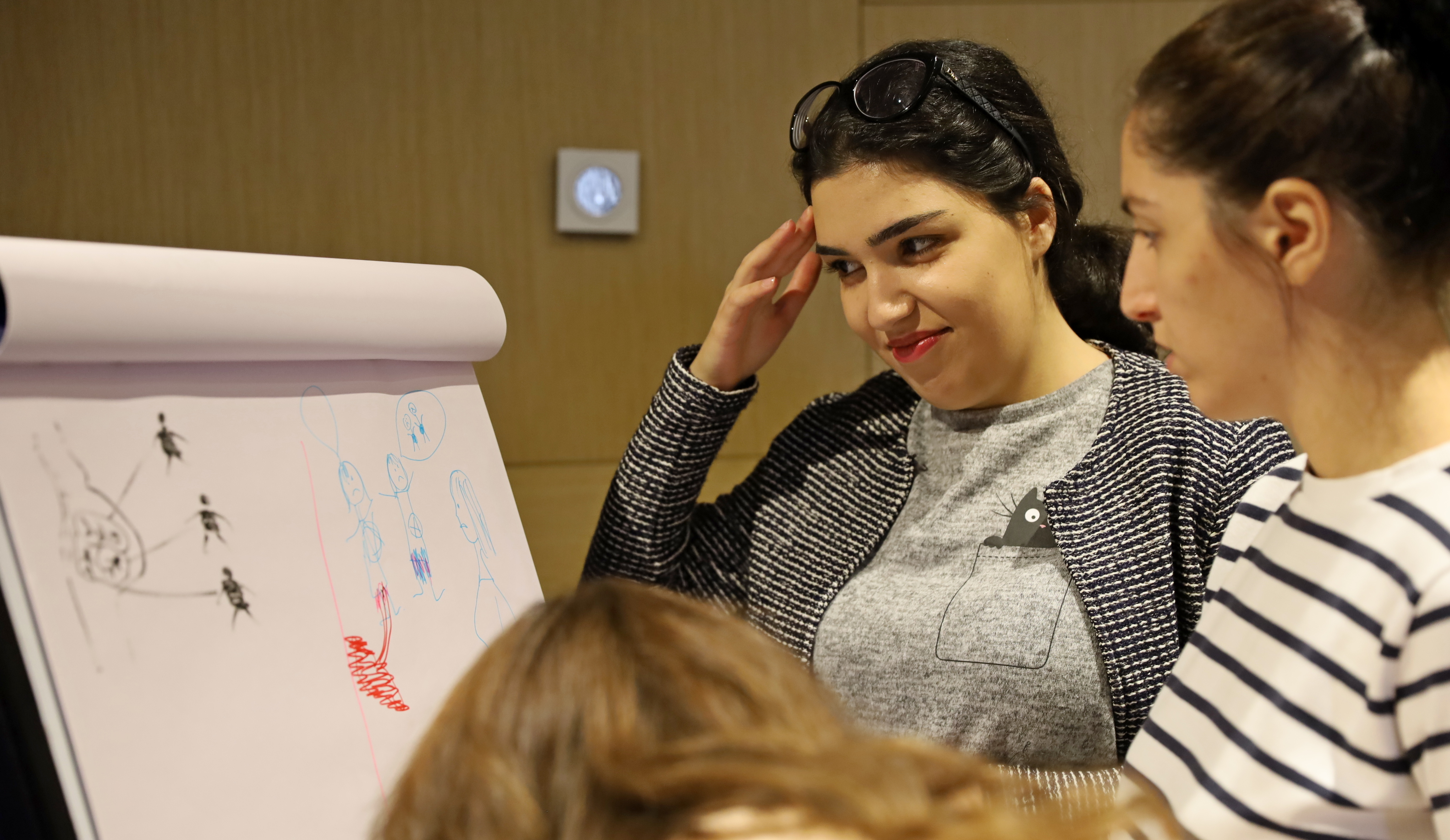
Vruyr Grigoryan, the coordinator of the working group on National guidelines development and consultant on obstetrics and gynecology of the Ministry of Health of the RA, emphasized that the guidelines, serving as a consulting document, stand as a needed component in advancing healthcare.
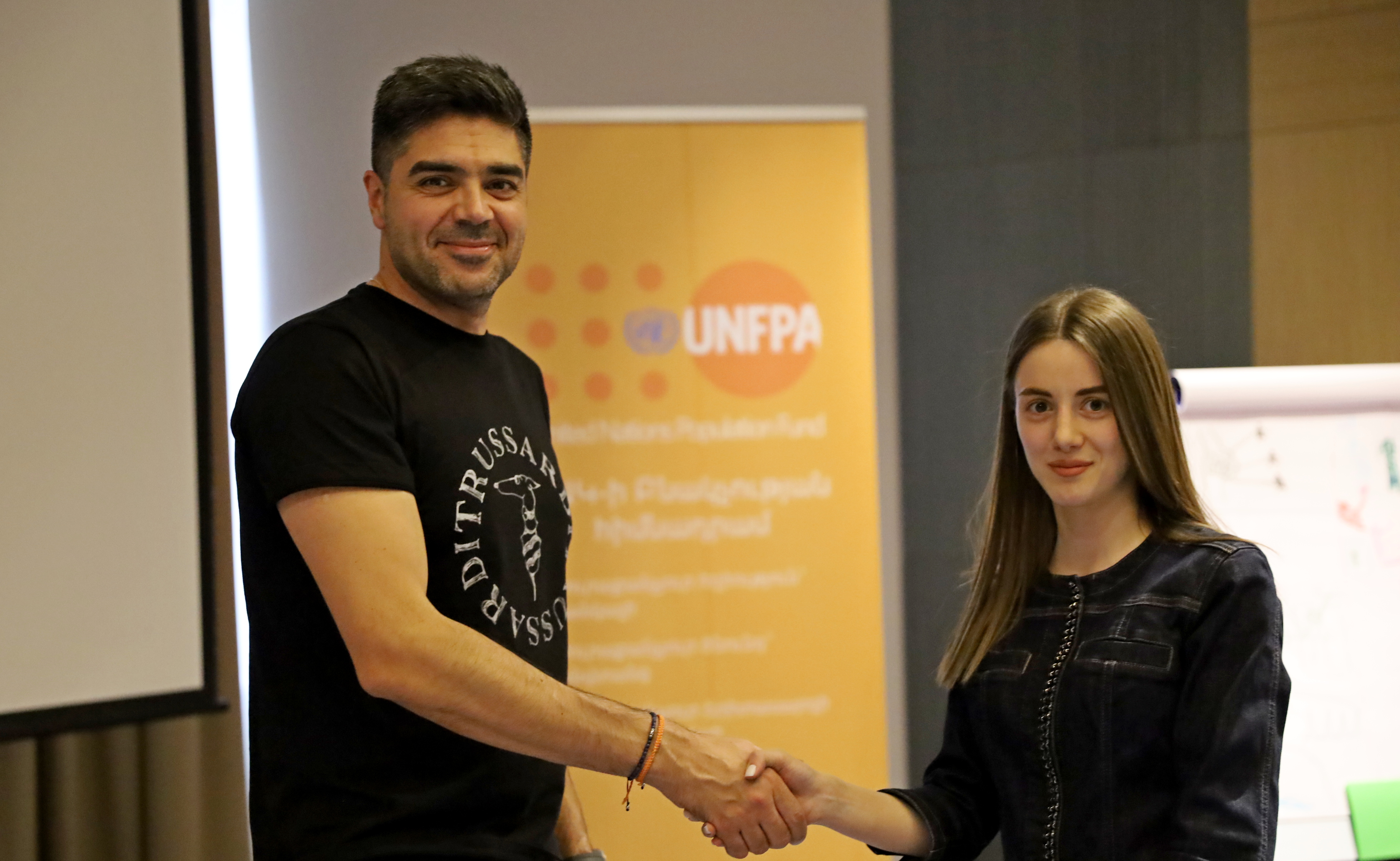
"The doctor's decision-making process is simplified and made more controllable and accountable with the help of the guidelines. In general, the implementation and application of such guidelines ensure equal standards for all medical facilities. Moreover, the fact that these guidelines are updated every five years ensures that we are always in step with global health developments and innovations," he explained.
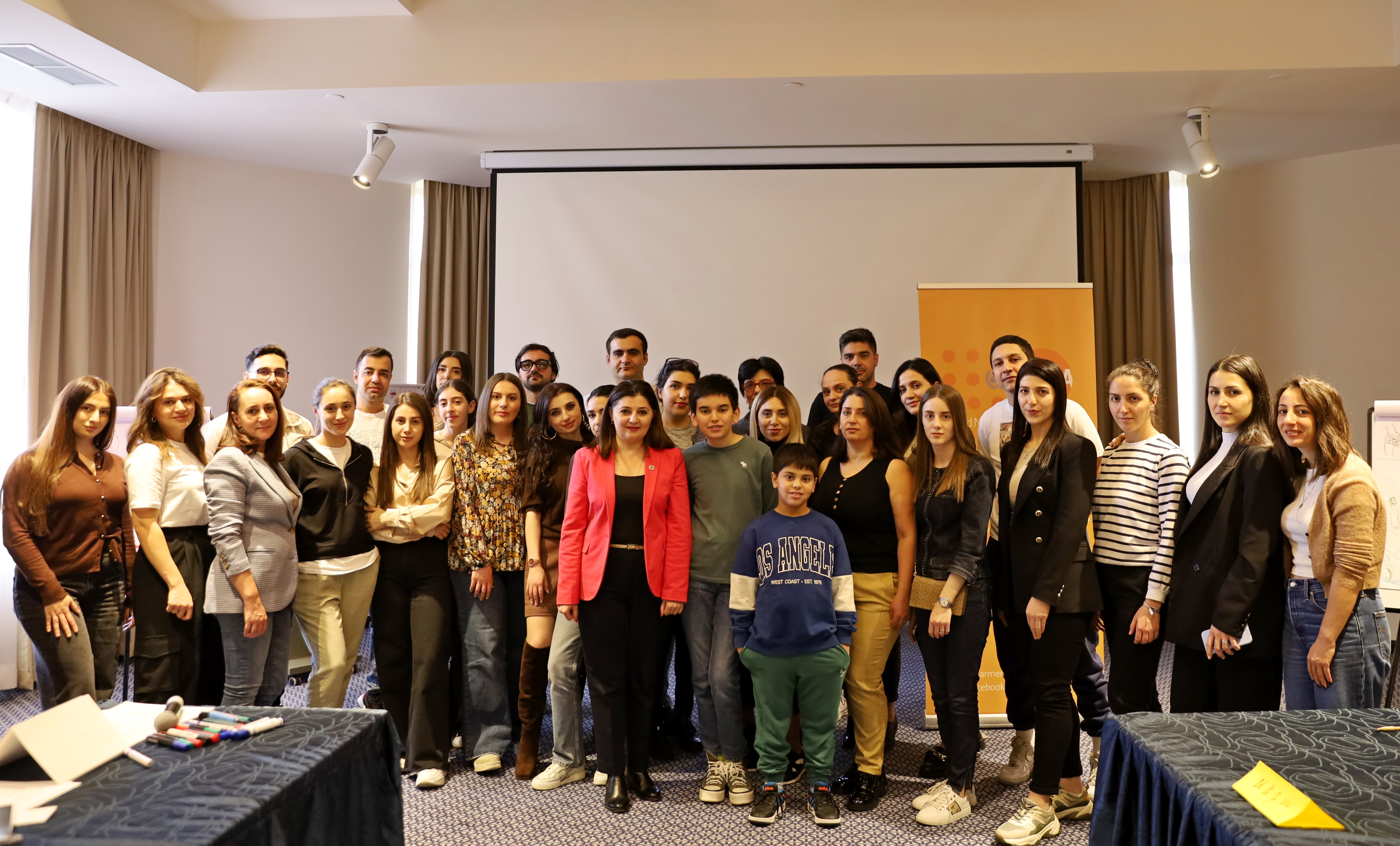
Since 2015, UNFPA Armenia has worked in collaboration with the RA Ministry of Health, the Republican Institute of Reproductive Health, Perinatology, Obstetrics and Gynecology, and the Association of Obstetricians-Gynecologists and Neonatologists to develop and implement clinical guidelines. Over these years, approximately 37 guidelines were developed, and hundreds of doctors and students have been trained based on these guidelines.

